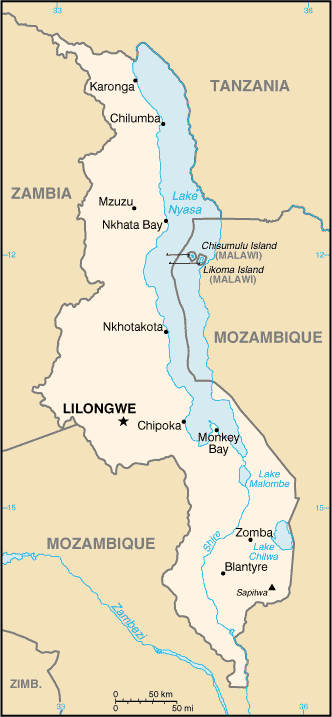Malawi

The Republic of Malawi has an estimated population of 15.6 million (UN, 2010). The capital is Lilongwe. Malawi has an area of 118,484 sq km (45,747 sq miles). The main languages are English and Chichewa (both official).
In 1964, Malawi became independent from the British. The country held its first multiparty elections after decades of one party in 1994. According to the United Nations, HIV/AIDS is a major problem in Malawi and kills nearly 70.000 people every year. The economy in Malawi is highly dependent on the agricultural sector, which is at risk of natural disasters from drought to heavy rainfalls. Poverty is widespread throughout the country. The country relies on foreign aid.
By signing regional and international conventions, the government of Malawi has reiterated its commitment to gender equality. The constitution grants the same rights to men and women and prohibits sex-based discrimination. HIV/AIDS is a major threat to women between the ages of15 to 24.
- Malawi ratified the Protocol to the African Charter on Human and Peoples' Rights on the Rights of Women in Africa (The Maputo Protocol) on the 20th of May 2005.
- The Convention on the Elimination of All Forms of Discrimination against Women (CEDAW) was ratified by Malawi on the 17th of March 1987.
- Malawi has not yet adopted a National Action Plan on United Nations Security Council Resolution 1325 (UNSCR 1325).
- There are no former or current UN peacekeeping mandates in Malawi.
Source:BBC, AlertNet, CIA, UN, SIGI,
